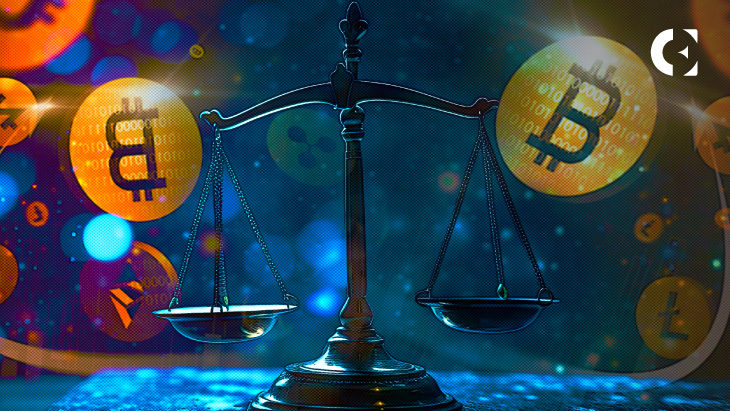- Key argument regarding the Major Questions Doctrine left unaddressed in SEC vs. LBRY case.
- John Deaton highlights LBRY’s strategic mistake in conceding first two factors of the Howey test.
- SEC’s handling of the “common enterprise” aspect of the Howey test questioned.
In a surprising turn of events, the recent legal battle between decentralized content distribution platform LBRY, Inc. and the Securities and Exchange Commission (SEC) reached its conclusion without addressing a key argument that could have had significant implications for the case. The absence of the Major Questions Doctrine from the proceedings has left LBRY ceasing their operations, as the court issued a final judgment largely favoring the SEC’s claims.
The oversight becomes even more significant considering the image attached to ConsenSys lawyer Bill Hughes’ tweet, which includes a footnote from the Memorandum and Order by the U.S. District Judge Paul Barbadoro in the SEC vs. LBRY case. The footnote reveals that LBRY did make a a last-minute argument invoking the “major questions doctrine,” but it was deemed forfeited by the court, stating that it should have been raised earlier in the case.
Meanwhile, prominent lawyer John Deaton’s tweet highlighted concerns over LBRY’s decision to concede the first two factors of the Howey test and solely contest the third prong, which may have been a strategic mistake. He argued that most token holders did not view the LBC token as an investment, emphasizing the SEC’s difficulty in proving commonality among investors.
In support of his argument, Deaton referred to a footnote in the SEC’s 2019 Framework, which disavowed the notion of a “common enterprise” being part of an investment contract. This raised questions about the SEC’s handling of this aspect of the Howey test.
Although LBRY’s case primarily revolved around Section 5 violations and did not delve into secondary sales or the Major Questions Doctrine, the court’s ruling casts doubt on the potential impact the unaddressed arguments could have had.
As LBRY, Inc. comes to terms with the outcome of the legal battle, questions persist over the impact on future cases involving decentralized platforms like Ripple and Coinbase, accused of selling XRP as unregistered securities.
Disclaimer: The information presented in this article is for informational and educational purposes only. The article does not constitute financial advice or advice of any kind. Coin Edition is not responsible for any losses incurred as a result of the utilization of content, products, or services mentioned. Readers are advised to exercise caution before taking any action related to the company.









